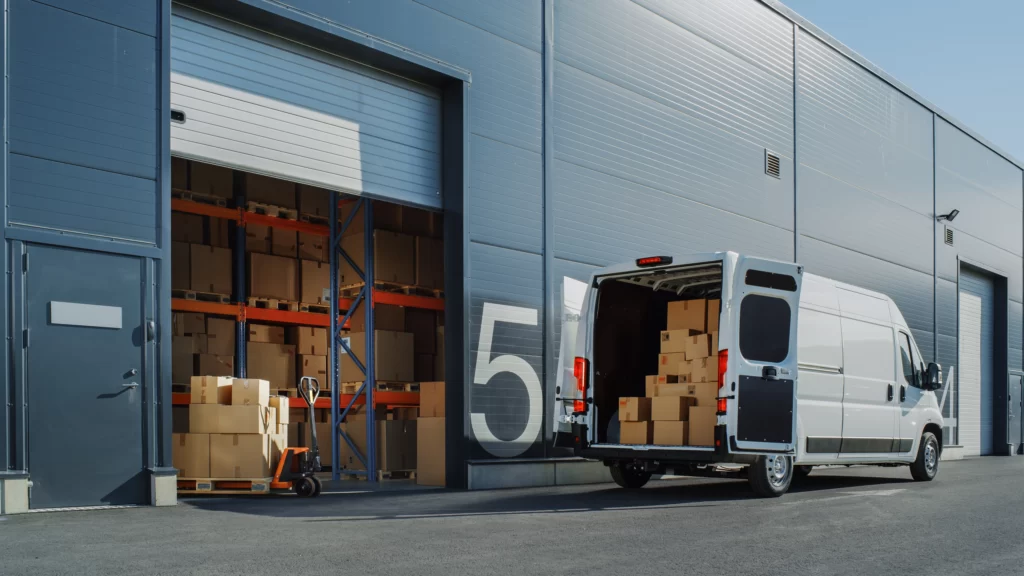The rapid development of information and communication technologies and the widespread adoption of online shopping have contributed to businesses transitioning their existing physical stores to online platforms, while also enabling entrepreneurs to start e-commerce directly by opening online-only stores. All of this has paved the way for the shift of logistics processes to electronic platforms, allowing fast and controllable e-logistics services to replace traditional logistics methods.
What is e-logistics?
Businesses aim to deliver their products to the right customer, at the right place, with the lowest cost and in the shortest time possible. This is only achievable through technology. Today, for sustainable competition, businesses need to plan and develop their logistics processes by using technology in their operational processes. This is precisely where e-logistics services come into play.
We can define e-logistics as a system that ensures the integration of products, services, and personnel by using technology and internet infrastructure, along with adding learning systems, in areas such as supply management, inventory management, sales/distribution management, warehousing management, and transportation vehicle management.
Which services does e-logistics cover?
For each e-commerce business to establish its own e-logistics processes internally means both a loss of time and financial resources for the business.
E-logistics services manage the processes of purchasing, demand forecasting, inventory management and forecasting, order processing, warehousing, packaging, loading, transportation, distribution, customer service, and returns for the businesses they serve.
The services provided within the scope of e-logistics are essentially not very different from traditional logistics services. What sets e-logistics apart is that this entire comprehensive process is based on information technology infrastructure.
If we list the services provided to businesses in the e-logistics process;
- Products are collected from businesses, then automatically packed, handled, and labeled.
- If there is international shipping, customs procedures are handled through internet-based services.
- Vehicles in distribution are tracked via satellite systems.
- Automation systems are used in warehousing operations.
- Orders are packaged and packed completely and delivered to the correct address in the shortest possible time.

Top 10 advantages of e-logistics for businesses
E-logistics systems, established with a technological infrastructure, aim to deliver products to customers with minimum errors, in the shortest time, and at the lowest cost throughout the logistics process.
Here are the key advantages of e-logistics:
- Based on the principles of sustainability and affordability in stock management, it prevents overstocking or stockouts.
- Scalability allows it to quickly adapt to changing circumstances and grow in parallel with your business.
- With the principle of fast and secure delivery, it emphasizes the importance of secure delivery alongside fast delivery.
- It is solution-oriented in the face of any potential problems and always offers alternative solutions.
- Thanks to its technological infrastructure, it ensures seamless and accurate communication between units.
- Businesses have more time to observe their customers’ needs.
- By understanding customers’ diverse expectations, businesses have the opportunity to increase product variety in both local and global markets
- Since products are stored within the scope of e-logistics services, businesses are free from storage costs.
- With effective customer service, customer satisfaction is achieved, increasing the likelihood of repeat purchases.
- As the return processes are automated by the system, there are no issues in processes such as products reaching the warehouse or refunds to customers
In this content, we discussed that e-logistics refers to a technology-supported field that emerged with the growth of e-commerce, encompassing a series of logistics processes aimed at optimizing product distribution, inventory management, and order processing for e-commerce businesses. E-logistics offers numerous advantages for e-commerce businesses; however, to fully benefit from these advantages, businesses need to integrate with the appropriate technologies and processes. It is necessary to obtain services from professional e-logistics service providers who handle these integrations and e-logistics processes efficiently.





